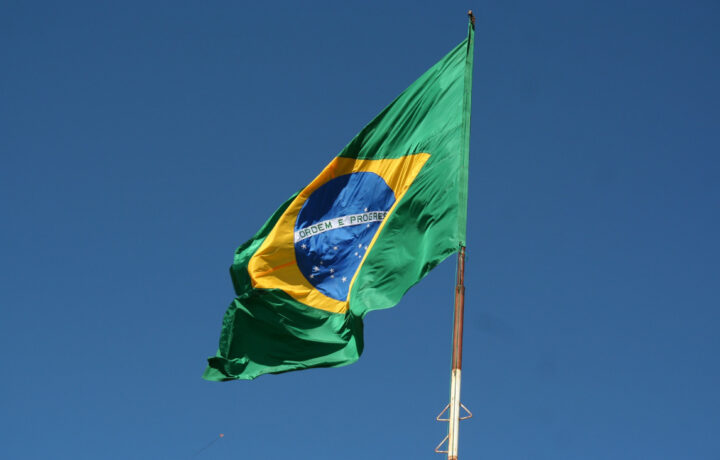The United States Department of Justice (DoJ) launched an investigation this month into a series of business practices that led to the awarding of a lucrative military contract. Such investigations aren’t exactly common, but what makes this one particularly unique is that DOJ’s corruption probe is being directed at the government of Brazil, and what led to its selecting the Saab JAS 39 Gripen fighter aircraft over the Boeing F/A-18E/F Super Hornet and Dassault Rafale.
It has been nearly a decade since Brasilia opted for the Swedish-made fighter over the American and French offerings, but questions have been raised about whether everything was conducted above board.
This is actually the third governmental legal review into Brazil’s selection process – and follows separate investigations launched in 2015 and 2015 by Brazilian prosecutors as well as another carried out by Swedish authorities. The DOJ is reviewing the $5.4 billion deal that was concluded during the presidential administration of Luiz Inácio Lula da Silva, who has since been convicted on a variety of charges of money laundering and corruption.
The Foreign Corrupt Practices Act
The DOJ’s authority to probe the affairs conducted by Brazil is based on the Foreign Corrupt Practices Act of 1977 (FCPA), which allows the U.S. Justice Department to investigate possible violations even for those outside of the United States – including those involved in corruption and bribery that may involve American firms or subsidiaries.
The FCPA is a federal law that essentially aims to prohibit U.S. citizens and entities from bribing foreign government officials so as to benefit their business interests. It is applicable worldwide and extends specifically to publicly traded companies – as well as their personnel. Amendments made in 1998 extend the law to foreign firms and persons who may have helped facilitate or carry out corrupt payments within U.S. territory.
“The law is meant to ensure we have a fair and competitive environment for our businesses to work,” explained Robert A. Sanders, Captain, JAG Corps, U.S. Navy (Retired) and distinguished lecturer of national security in the Henry C. Lee College of Criminal Justice and Forensic Sciences at the University of New Haven.
“We want a fair competitive environment for our businesses to work, and that is why we have a Department of Commerce,” Sanders told ClearanceJobs. “We want everything to remain on that fair and level playing field, but that isn’t possible when entities will give favors or bribes to win favors or contracts.”
1. Doesn’t Have to Be in the USA
The FCPA can extend to foreign companies and individuals who engage in corrupt activities, even if the bribery doesn’t take place on U.S. soil.
“The anti-bribery provisions of the FCPA now also apply to foreign firms and persons who cause, directly or through agents, an act in furtherance of such a corrupt payment to take place within the territory of the United States,” the DOJ explained on its website, and noted, “The FCPA also requires companies whose securities are listed in the United States to meet its accounting provisions.”
Likewise, the FCPA applies to the conduct of a U.S. citizen while in a foreign country, and to actions taken in the U.S. “in furtherance of” the corruption of a foreign official.
“There is nationality principle, which allows the Act to apply to any person with a connection to the United States, including if payments were made through U.S. banking institutions,” Sanders added. “And there is the protected principle, so even if the corruption is outside the U.S. individuals can still be charged for their conduct.”
2. Gifts Are Still a Bribe
The law makes it illegal for a U.S. person or company – including any international firms that have U.S. subsidiaries – to offer, pay, or promise to pay money or anything of value to a foreign official for the purpose of obtaining or retaining business.
“This is important to understand, as bribes don’t have to be monetary,” explained Sanders. “We’ve seen in some cases where U.S. military officers were given Rolex watches by the government of Bahrain after the work was already done. Those watches had to be handed in. The officers could pay the fair market value if they desired, but otherwise, they couldn’t just keep them.”
3. “Grease” is the Word – To a Point
It is also worth noting The FCPA, however, carves out an exception for facilitating so-called “grease payments” that are made to foreign officials to expedite or secure the performance of routine government actions. Yet, grease payments are still not legal if the foreign official has the discretion to award or continue business with the party.
Moreover, under the FCPA, a grease payment wouldn’t change the outcome of a foreign official’s decision, and if it did, then it would be considered a bribe – and therefore illegal.
Diplomatic World vs. Economic World
Questions were raised about the apparent “quid pro quo” deal that involved Turkey’s acquisition of the F-16 Fighting Falcon while Ankara was holding up Sweden’s bid to join NATO last year.
Secretary of State Antony Blinken denied that a deal was made to lift Turkey’s block of the Nordic nation, but there have been reports the quid pro quo was brought to Congressional leaders.
“We have to accept that the diplomatic world is very different from the economic world,” suggested Sanders. “Nations will make deals for national security as opposed to making a deal to benefit a contractor.”
Yet, others have suggested the DOJ could be a bit more zealous in enforcing the FCPA.
“After the November election, it would behoove the new president to check on the Justice Department’s current enthusiasm, or potential lack thereof, for FCPA prosecutions,” said national security attorney Dan Meyer, Tully Rinckey, PLLC. “The numbers seem to be in decline since 2019.”




